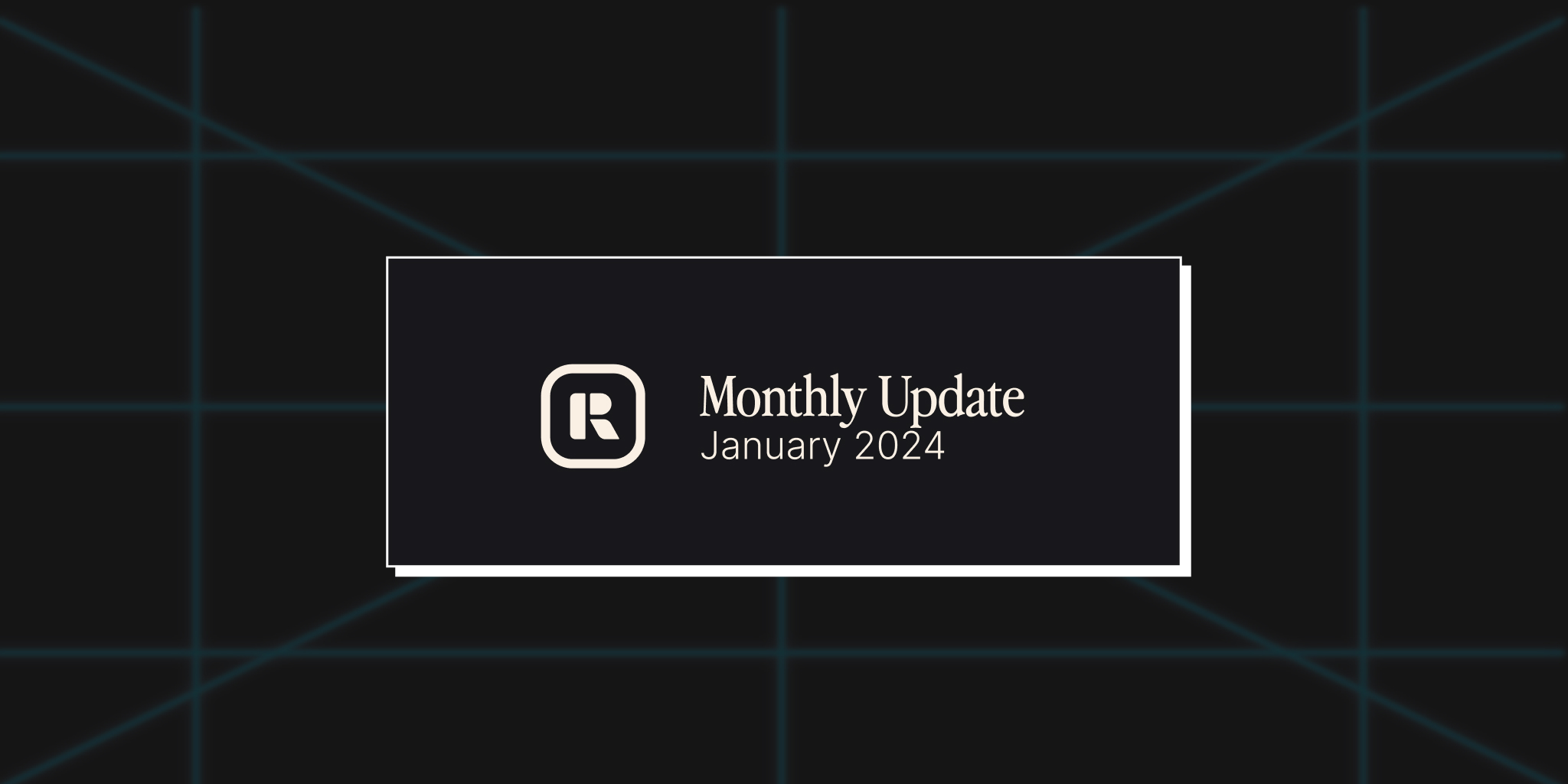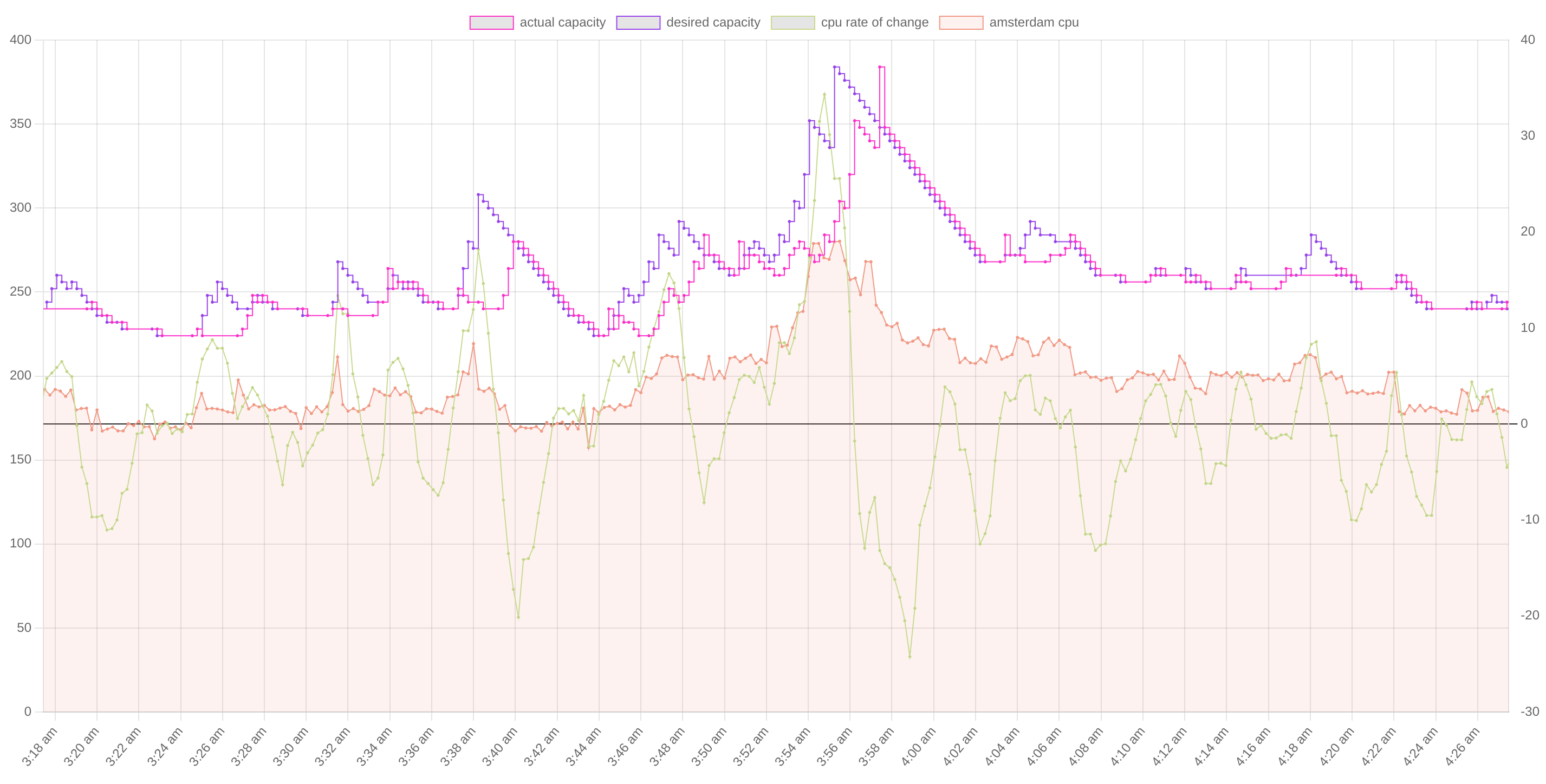
January 2024 Monthly Update
January saw the release of Rivet's Open Beta! We also released a new Godot plugin, and work has been done on automatic server provisioning.
Open Beta
Rivet is in Open Beta! This means that you can create a Rivet account, and start shipping your own multiplayer games.
Rivet has been in closed beta for several months, and we've been working closely with a group of developers to test out the platform at scale. Over December and January, we've done a lot of work increasing the stability of the platform.
In January, we brought up our new production cluster. This will be the final version that Rivet moves forward with (we have several testing clusters), and what you'll use when you get started with Rivet. We have been migrating existing users over throughout the past few weeks, and we're excited to help lots of new developers get onboarded on to the platform.
Godot plugin
We've been working on a plugin for the Godot game engine. This plugin is many steps ahead of the previous engine plugins that Rivet shipped. It considers the full lifetime of a multiplayer game on Rivet, and leaves a lot of room for more educational content in the future.
The new Godot plugin includes a full build pipeline that can be run entirely from inside the engine, without interacting with the Rivet CLI at all. With a click of a button, a server build of your Godot project will be built, inserted into a Docker container, and uploaded to Rivet. This makes it super easy to get a playtest going with some friends to check out your latest features!
You can also do several other things, from shipping to production, to quickly accessing your game's logs and lobbies on the hub. There will be many improvements to the plugin over the next few months, and we're excited to see developers making use of it. To play around with the plugin, you can check out the ever-improving Godot learning center, where we've just released a full walkthrough of integrating Godot's bomber demo with Rivet.
The next big feature in this direction will be the overhaul of the Unity plugin to match the Godot plugin's functionality, so stay tuned!
Auto server provisioning
Lots of work went into the automated server provisioning system. This allows Rivet to easily scale up and down game servers in different data centers around the world.
When a developer ships their multiplayer game on Rivet, they'll want the game to scale up in a region that's close to their players as demand increases. Because there are many developers using Rivet in a single region at once, Rivet needs to quickly be able to start a new virtual machine so that it can start running game servers.

| In the image above, the purple line represents the required VM capacity based on how much CPU (beige section) is being used. The pink line then represents changes in how many VMs are available. The green line represents the rate of change of CPUs required.
A key part of this work was decreasing the start time of a new virtual machine. If Rivet predicts a sudden increase in demand, it needs to be able to start a new virtual machine as fast as possible. With optimizations that were made, start time is now around 40-90 seconds.
Other ongoing items
We've been hard at work in several other directions as well. A key area we're focusing on is improving the ease of open source contributions. This includes making a consistent way to bring up Rivet's infrastructure locally. We want to make sure that developers can contribute without too much configuration on their end, so we're looking at how we can leverage Devcontainers or GitHub Codespaces (and alternatives).
We're also playing around with building Rivet's Rust svc crates in Docker on
Apple M1 machines. There are a lot of optimizations here that we're using to
reduce build times. We published our rivet.yaml schema to the
schemastore, making it easier for people to
get hints when configuring their Rivet games.